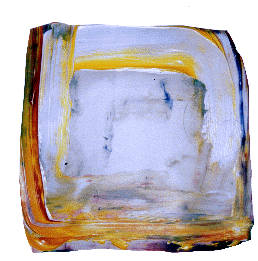

A Dedication and Eulogy
To my father, to whom this site is dedicated, a eulogy, delivered January 20, 2000. Thank you all for coming. I never want to speak on these occasions, because I am not their equal. My father is Rushmore to me, and shadows me. He was stronger and braver, kinder and more true than anyone I have known. He had no vices. His father, my grandfather, was called by everyone who knew him a prince of men, and my father succeeded to the throne. The theme is Socratic, as of the Phaedo: 'Of all the men that I have known, he was the wisest, and justest, and best.' I am often asked the genealogy of 'genius.' It is the simplest and most elusive of compliciters: goodness, generations of goodness. You are here, I presume, because of my father's heart, and soul. They were greater than mine, so I cannot size them. I am here to testify to something else, of which I can speak with more authority--his mind. First I will tell you a story. I went to medical school with Albert Einstein's grandson, who sat next to me in histology, our first class. He had blond hair, and was from Switzerland, but always denied his ancestry. Outside of a few administrators, no one knew. And of course, it was reasonable to assume there were other families of Einsteins from Switzerland. But one day he and I talked about physics, a question in optics. He was not distinctively gifted academically, but as he paused to think, a distant look appeared in his eyes, and the answer he provided was strangely striking, with strange perspective--and in the instant I knew who his grandfather was. The line was clear, and unbroken. Einstein's work is celebrated for its difficulty, but it is not more difficult, and is in fact less concentrated, than my writings, especially as of a few years ago. My father and I often discussed them, and the problem of their accessibility. Even now very few people can claim genuine understanding, though the number is growing. About a year and a half ago I called and read my father some recent thoughts. I asked him his opinion, and he answered, 'When I hear your writings, I see blue skies, and fresh fields.' The perspective of the thought, what it describes and brings home, is Eden, the Elysian fields, and my father is still the only person I know who saw it so clearly. His remark was as striking as Einstein's, and confirmed for me that the line, the intellectual genealogy, was clear, and unbroken. My father's was, and remains, the most strikingly intelligent and discerning comment, not only that I have heard about the philosophy, but from anybody, on any subject, ever. My experience of people, their claims, is largely summarized by Eve's assessment of Adam, in Mark Twain's account of the Garden, 'He knows a multitude of things, none of which are so.' My father had no pretensions. Everything he knew was so. In the last years, he became the only person whose discernment I respected, and whose judgment I trusted. He responded perceptively to the philosophy, the art, biology and physics, literature and poetry--everything I discussed with him. And his sense of people was infallible. His spirit and understanding are everywhere--in my art, writings, discoveries, mind, and soul. I have been blessed. I have been the recipient of unusual gifts, preternatural gifts. But the most extraordinary of all was my father.
![]()